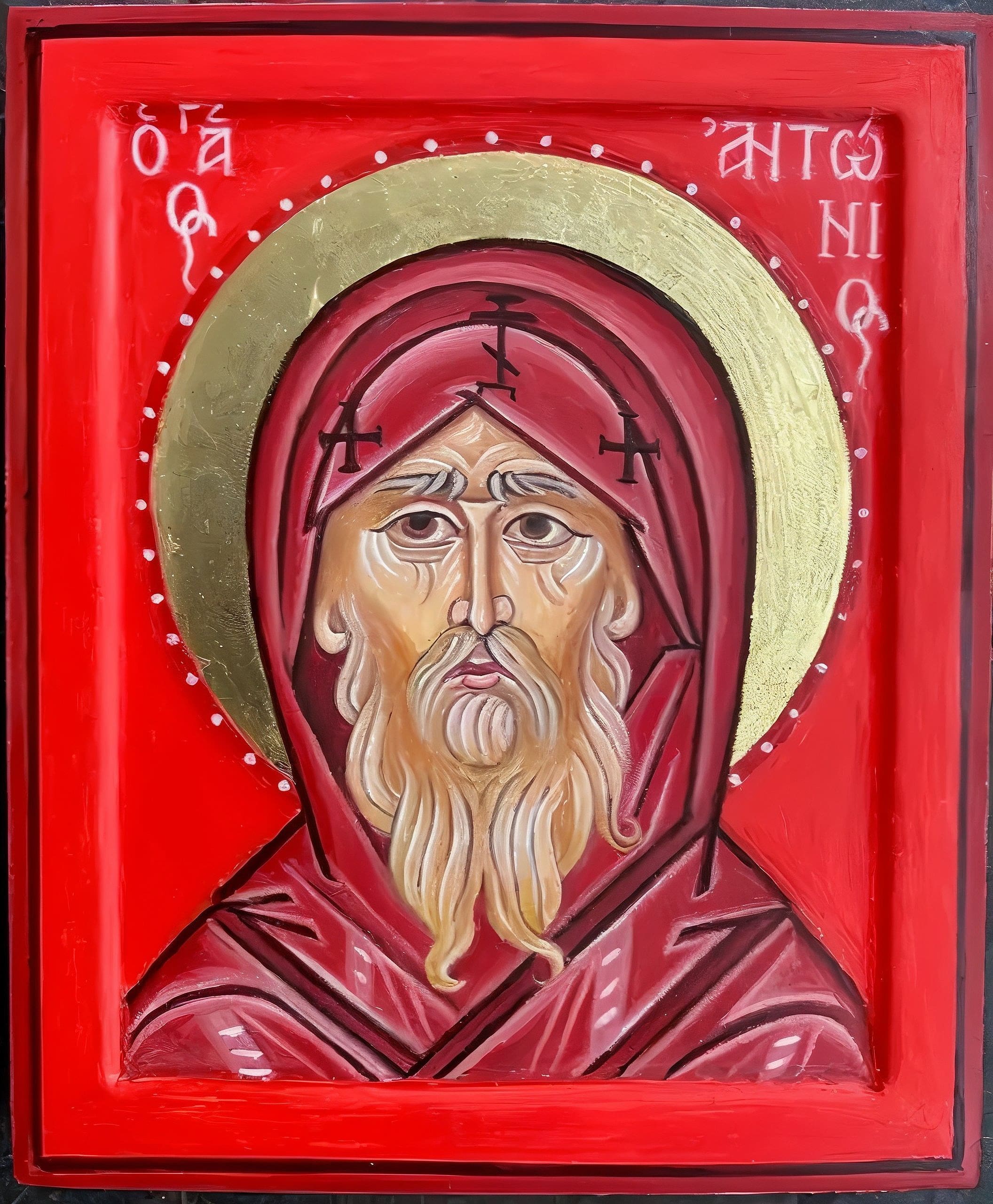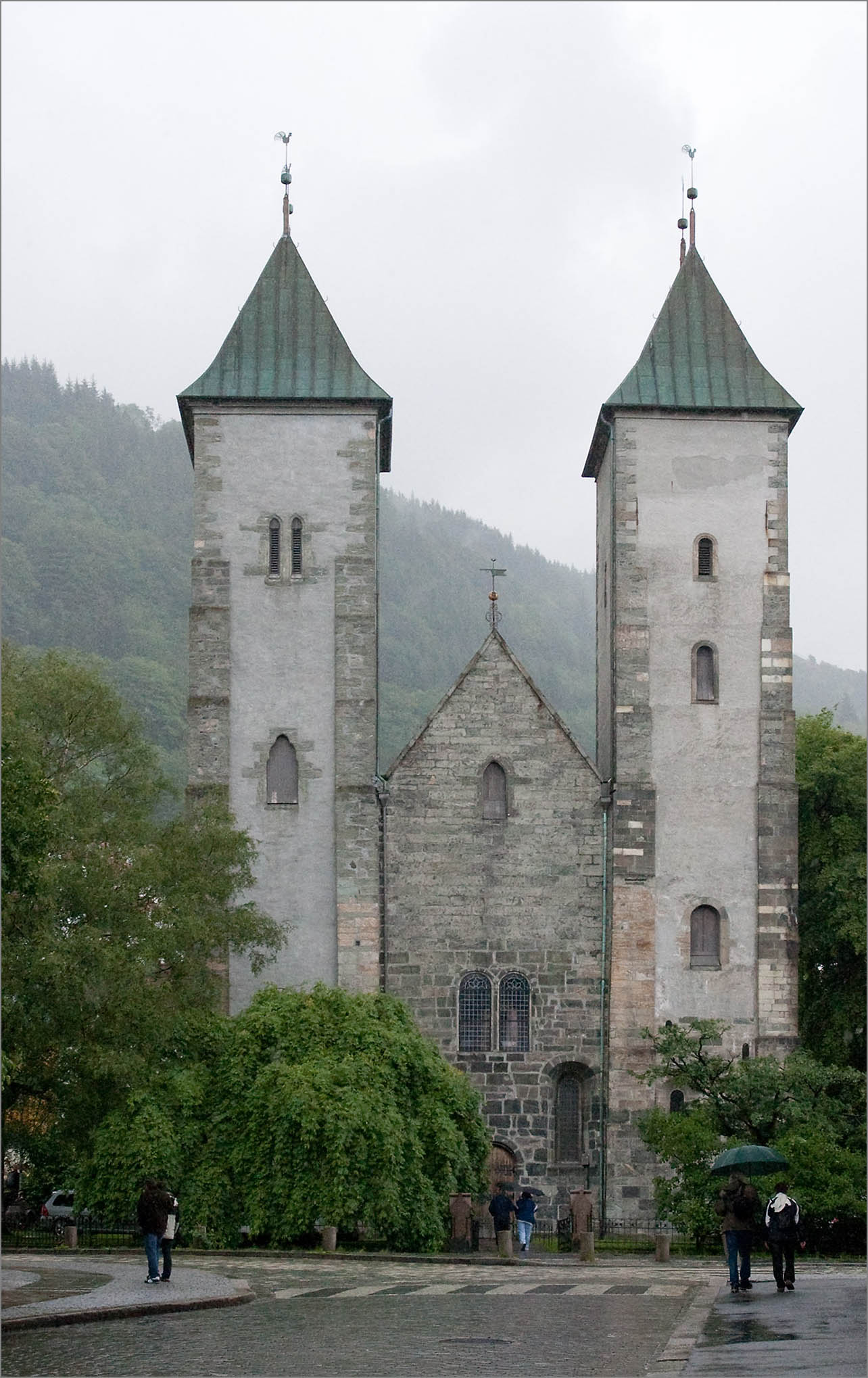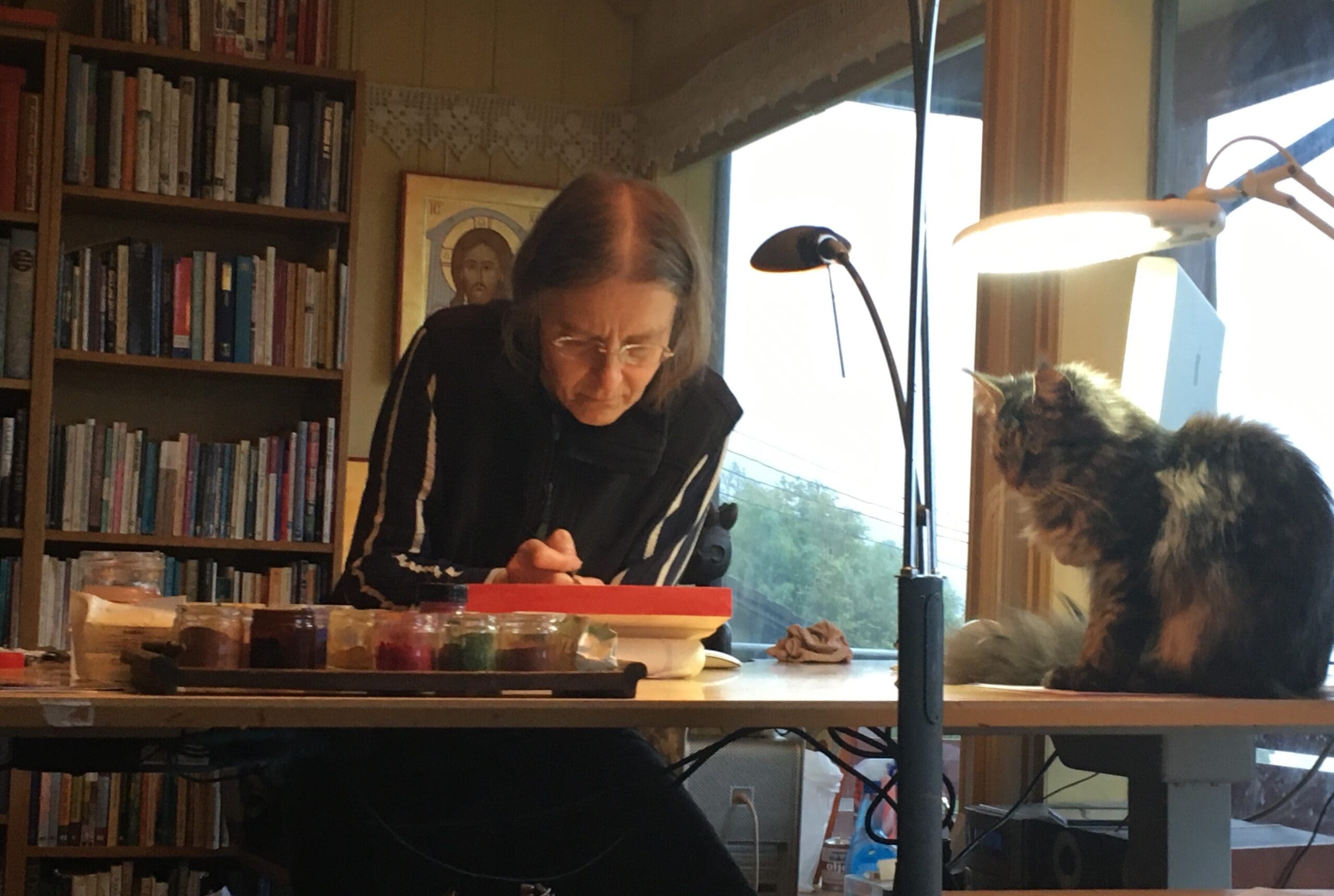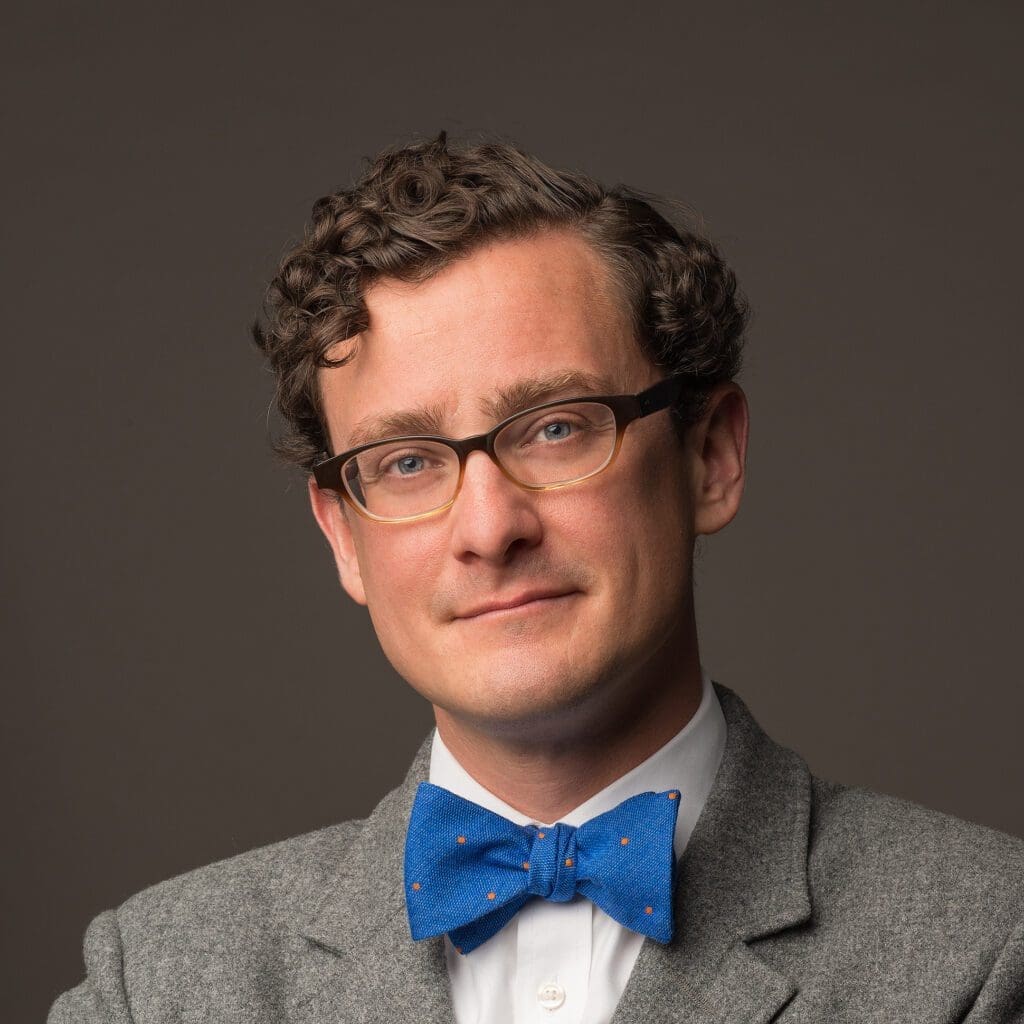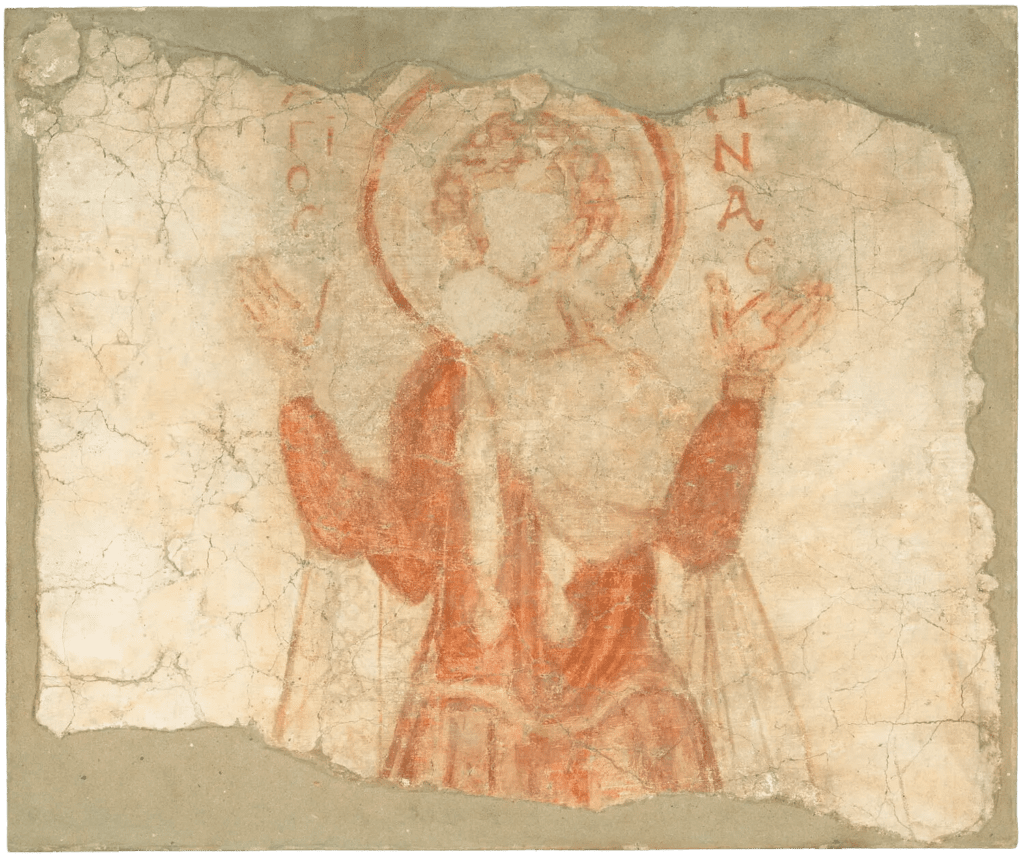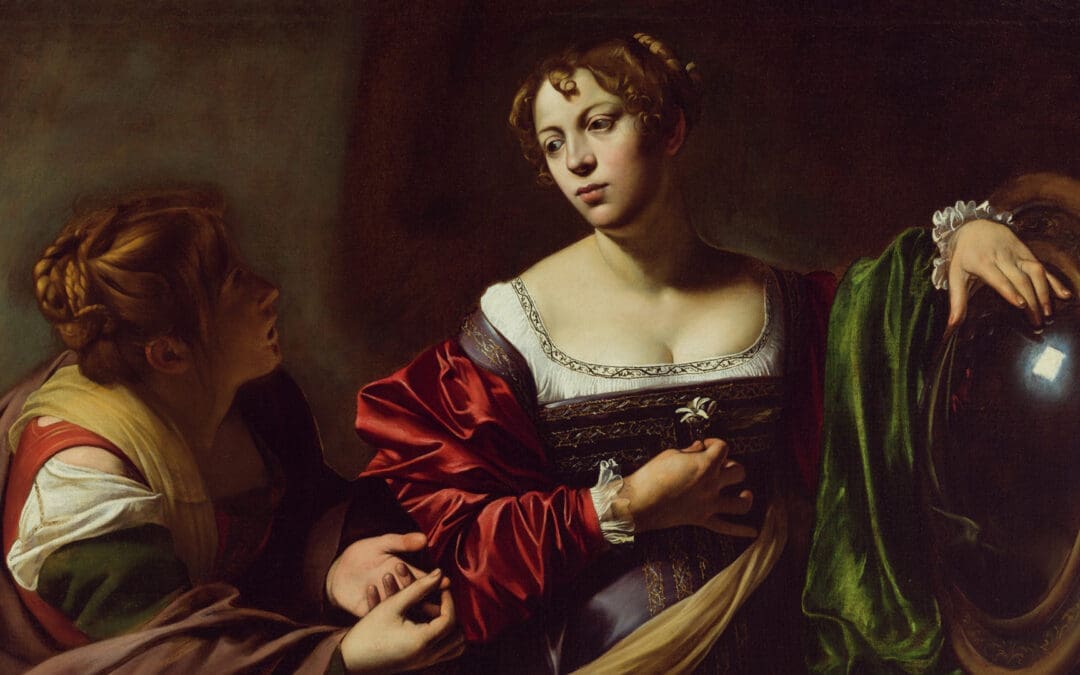I
If Evagrius of Pontus, whom we looked at in the last column, were to travel through time from the fourth to the twenty-first century and through space from Egypt to Norway, his writing might feel something like that of Addison Hodges Hart. The elder brother of the theologian David Bentley Hart, Addison is an ordained Anglican priest and the author of numerous books (discussed below), and of a Substack, The Pragmatic Mystic, that I find indispensable. The path toward mysticism is blocked for many because of the myriad dumb things said in its name by less responsible writers and commentators. But Addison is different. For example, he can learn from Zen while being aware of Buddhism’s considerable limitations, and he rips into the blinkered historicism of the quest for the “historical Jesus” while displaying a profound interest in history (on offer in his series on Ecclesiastes and the Gospels). While Addison knows the limits of theology, he also knows that to actively court heresy is not only foolish but also cruel; moreover, Addison’s Jesus is no misty-eyed pushover.
I hope you find this conversation as constructive as I did.
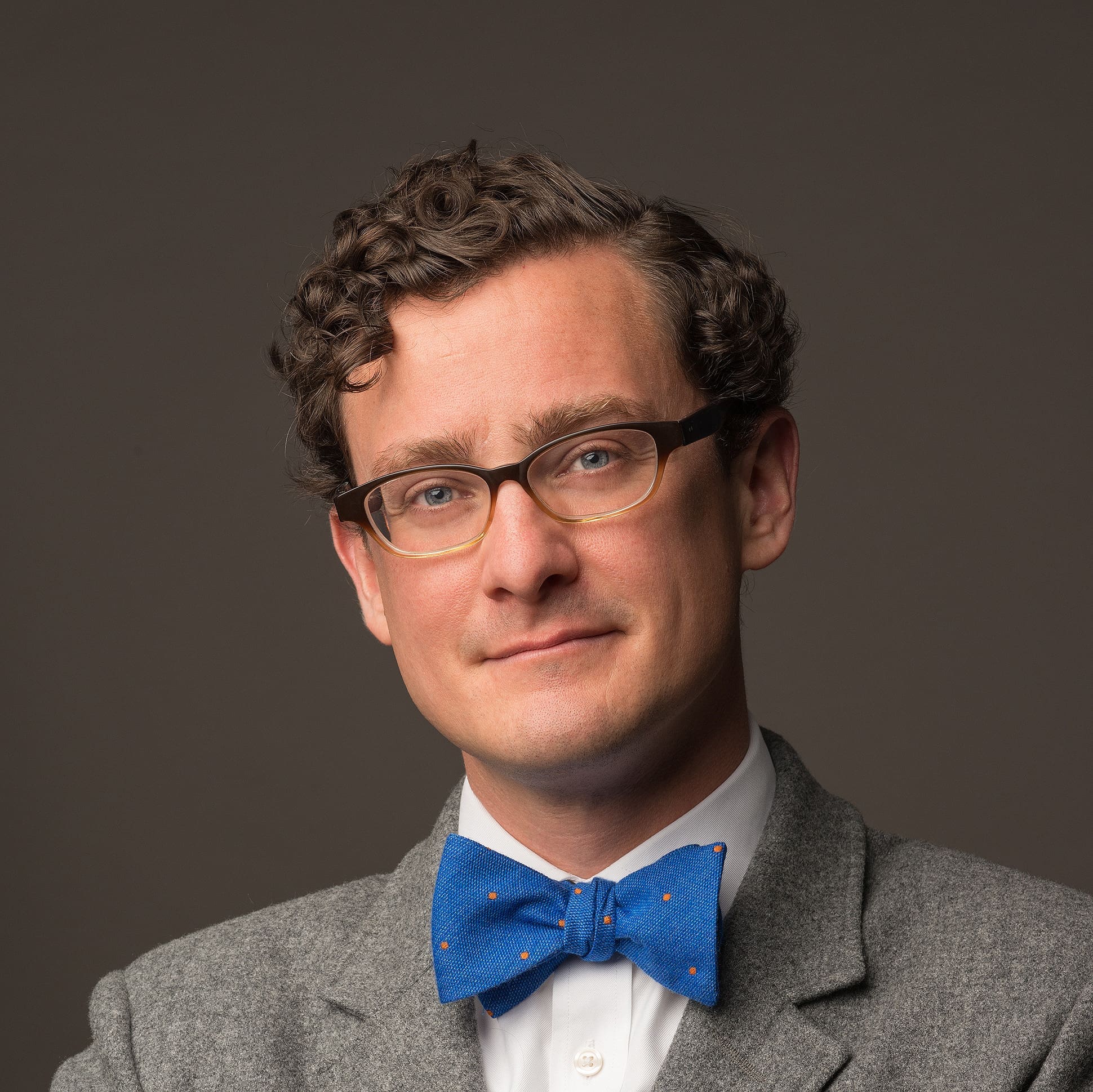
Matthew J. Milliner: I initially titled this interview “The Cynical Mystic,” Addison, because one of the things I have found so refreshing about your work is its combination of cynicism with mysticism. “Cynic,” as you know, derives from the ancient Greek word for dog, and as the Cynic Diogenes once said, “I bite my friends to save them.” Similarly, while so much mystical writing is toothless, your writing has bite. Maybe one of the reasons your work is so important is because you show that those of us who are growing into mysticism need not despise serious learning. I won’t name names, but why are so many who discover mysticism prone to intellectual laziness or dumb sloganeering, and how have you avoided the same mistakes?
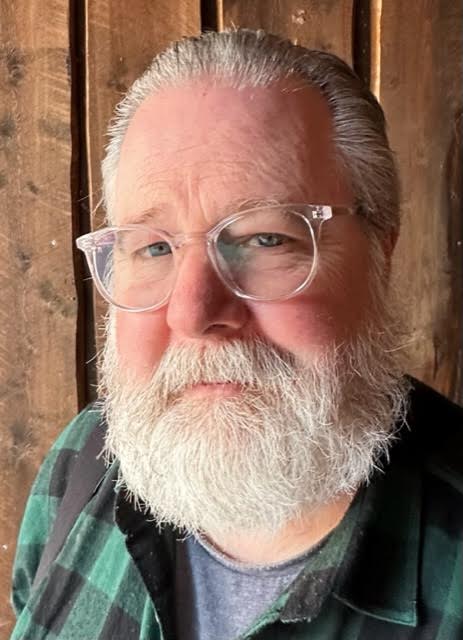
Addison Hodges Hart: I do see what you’re getting at, Matt, but I’d hesitate to call my bent of mind “cynical” (not that I’ve never been called that before, mind you—I believe the first time I was called “cynical,” I was seventeen years old). I’m more “skeptical” than cynical, which is something different, but it’s a terribly misunderstood word. Skepticism comes naturally to me. One of my mentors, who is still a good friend, Fr. Patrick Henry Reardon, once said about me that I not only don’t suffer fools gladly; I don’t even suffer them reluctantly. I’d prefer to say “foolishness” rather than “fools,” but it’s a trait—maybe a besetting sin—I can’t deny, even if sometimes I try to live it down. The term “skepticism” is popularly taken to mean “doubt”—but that’s wrong. It means something more like scrutiny. My first book, Knowing Darkness, was subtitled On Skepticism, Melancholy, Friendship, and God, and in it I defended a properly skeptical frame of mind. I say explicitly in that book that skepticism is not to be confused with doubt or cynicism, and I go on to say that it can even be “a laudable quality which keeps religion honest.” The word is derived from the Greek skeptesthai, which means “to fix one’s gaze on,” “to look into,” “to examine,” “to observe,” and the like; so, in the book, I say it means “the act of looking hard at things for the purpose of discovering and understanding what may [or may not] be true about them.”
Of course, one can only be skeptical about those things that one cares enough about to scrutinize—which is why it’s often the case that “skeptics” in the popular sense aren’t really skeptics at all, but merely prejudiced; they’ve made up their minds about, let’s say, religion or some metaphysical subject beforehand, have dismissed it without investigating it in any serious way, and then go on to denounce those very things they haven’t bothered to examine in detail. For those who do know these subjects well, through study and experience, the prejudiced—even of the intelligent variety—are easy to spot. It’s soon evident they don’t know what they’re talking about. That’s a rather general castigation, I admit, and some may see it as unfair; but I see this sort of lazy bigotry displayed, camouflaged as “skepticism,” again and again in every popular form of media. Anyway, such persons aren’t true skeptics. To be a real skeptic, you must love something enough to want to engage it and really examine it. Skepticism is about truth, necessarily rooted in trust (which is what we mean by “faith”), and it’s an act of love—“speaking the truth in love” (Ephesians 4:15). It eschews both gullibility and prejudice.
So, to touch on a couple of your examples, culled from my Substack posts, I can find things to love and that intrigue me in, say, the Gospel of Thomas, while regarding it as absurd—as some have done—to equate this comparatively late, fluid, sometimes astringently ascetical text with our far richer first-century canonical Gospels. Similarly, I sincerely find much to value in the works of C.G. Jung, and yet I regard his Answer to Job as worthless theologically, spiritually, or even as sound literary analysis. And likewise with the other examples you mention.
So, I’m skeptical, not cynical, and a lot of what I see in spiritual and religious discussion these days doesn’t stand up to scrutiny—at least, not to my scrutiny. There’s a tendency among some—especially among those who have been burnt by religious institutions—to seek for something deep and authentic on the margins, and sometimes to pose as “edgy” and “daring” and “esoteric” in the process, while virtually ignoring the riches right under their noses. I blame the churches for that more than the persons involved, to be honest. The churches have so flattened and compromised and forgotten their mystical heritage it’s no wonder the disaffected don’t know the value of their birthright and trade it for “a mess of pottage.”
Hart Family Dynamics

MJM: At your suggestion I read Hugo Rahner’s Our Lady and the Church, and the author of the preface says that while he admires both Rahner brothers, Karl and Hugo, he especially appreciates the ecclesial and accessible appeal of the less famous Hugo (the elder Rahner brother by four years). I could not help but think of you and your brother David. I am forever in debt to David as his writing has had such a profound role in my faith, but I have found that there was a certain point where I had to move into your work as well (while still reading David, of course). I started with The Yoke of Jesus, then read The Ox-Herder and the Good Shepherd, and just kept going. I’m also looking forward to reading your novel, Confessions of the Antichrist. I might go so far as to say that someone who has read only your brother is really missing out. I was surprised once when you said, in passing, that you did not have the same fierce convictions about universalism as David, as you kept the question open. Do you care to comment on any of this?

AHH: Well, first, thank you for your kind remarks about what I’ve written. David and I are engaged in different projects. His is more academic in nature, with the exceptions of his more fanciful writings and opinion pieces. Mine might be said to be—again, with some exceptions—more “pastoral” in character. Which doesn’t mean I’m a lot “nicer” than he is; on the whole, I’m probably more curmudgeonly than he is and only slightly less irascible. But it means that by intention I’m trying to connect with intelligent laypersons to encourage them to seek and find and go deeper. I’m a pragmatist, which means I want them to engage spiritually with what works in practice.
You’re right, I don’t have the same “fierce convictions” about universalism that David has. I’m too phlegmatic to stay “fierce” for any sustained length of time. I don’t disagree with him, though, on the matter. Never having believed in “eternal torment” myself, it’s not something I dwell on much at all. It’s a doctrine with which many who were involved in more “fire and brimstone” churches have had to struggle; but I grew up—and am today—Anglican, and I was exposed from infancy to the judicious approach to faith that used to characterize that tradition. But I do believe in “hell”—as does David and all universalists—if by that unfortunate word one means a prolonged state (whatever “prolonged” might mean in a post-mortem existence) of purification or purgation for those who adamantly resist goodness and grace. There are times when, in the face of manifest evil, I have considered the possibility of psychic “self-annihilation”—meaning that there are those that might be so reduced by involvement in evil as to have let go entirely of their humanity and, consequently, shall “perish” or return to nothingness (something that the Gospel of John might suggest).
But, at the end of the day, I’m a hopeful universalist, for reasons David outlines in his book. Where I differ from him, perhaps (and only perhaps), is in three ways. First, I’m not strident about it, which may be a flaw in my character. I have little concern for the subject. Second, I don’t believe that anyone can truly be a dogmatic universalist, even David; at best, one can only ever be a hopeful universalist. And this is because, third, no matter how I might construct even a seemingly unassailable argument in which God—infinite, ineffable, beyond all human thought—figures, no premise I establish can ever be sufficiently knowledgeable. (My skepticism again—perhaps in this instance, reinforced by my decades of exposure to Zen, in which all argumentation is suspect, as well as my strong inclination toward apophaticism.) The human intellect—to borrow an analogy from William James—can no more comprehend the mind of God than a cat or dog can comprehend the human knowledge stored in a library. The real “premise” underlying every matter of existence can only be comprehended by the infinite God, and my human argument doesn’t even amount to the status of being paltry. So, where I begin and end is trusting God (whose presence I don’t doubt) and “working out my own salvation with fear and trembling, knowing that God is working in me” (Philippians 2:12–13). I suspect that David, really, believes much the same.
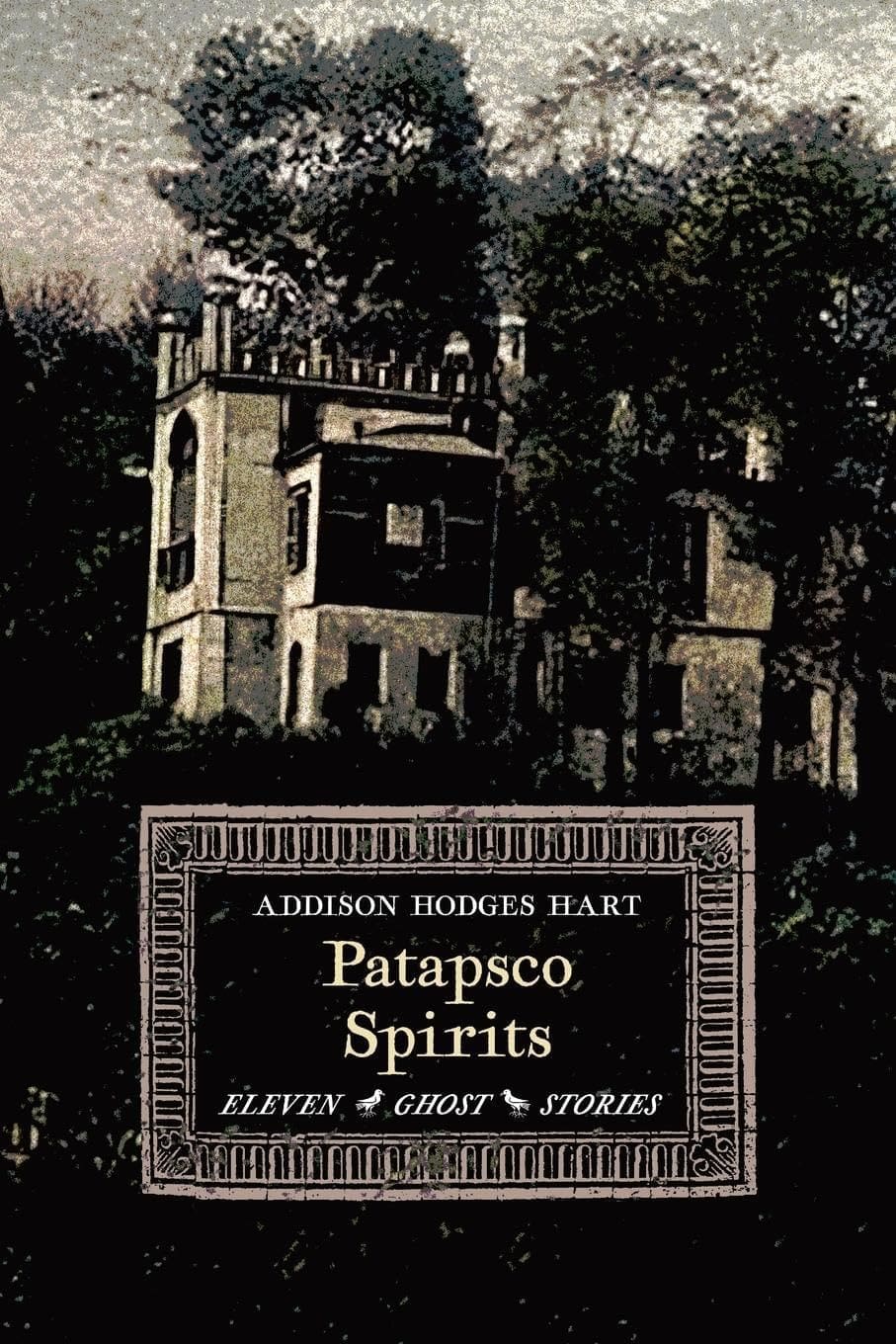
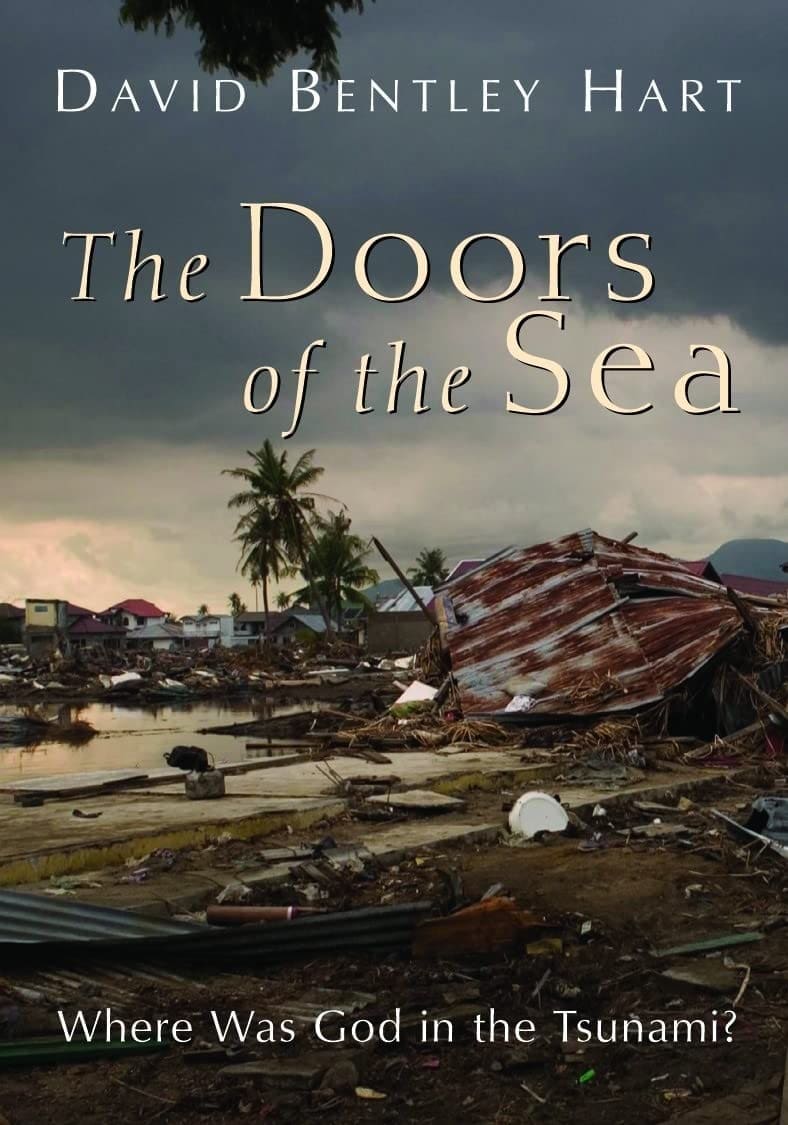
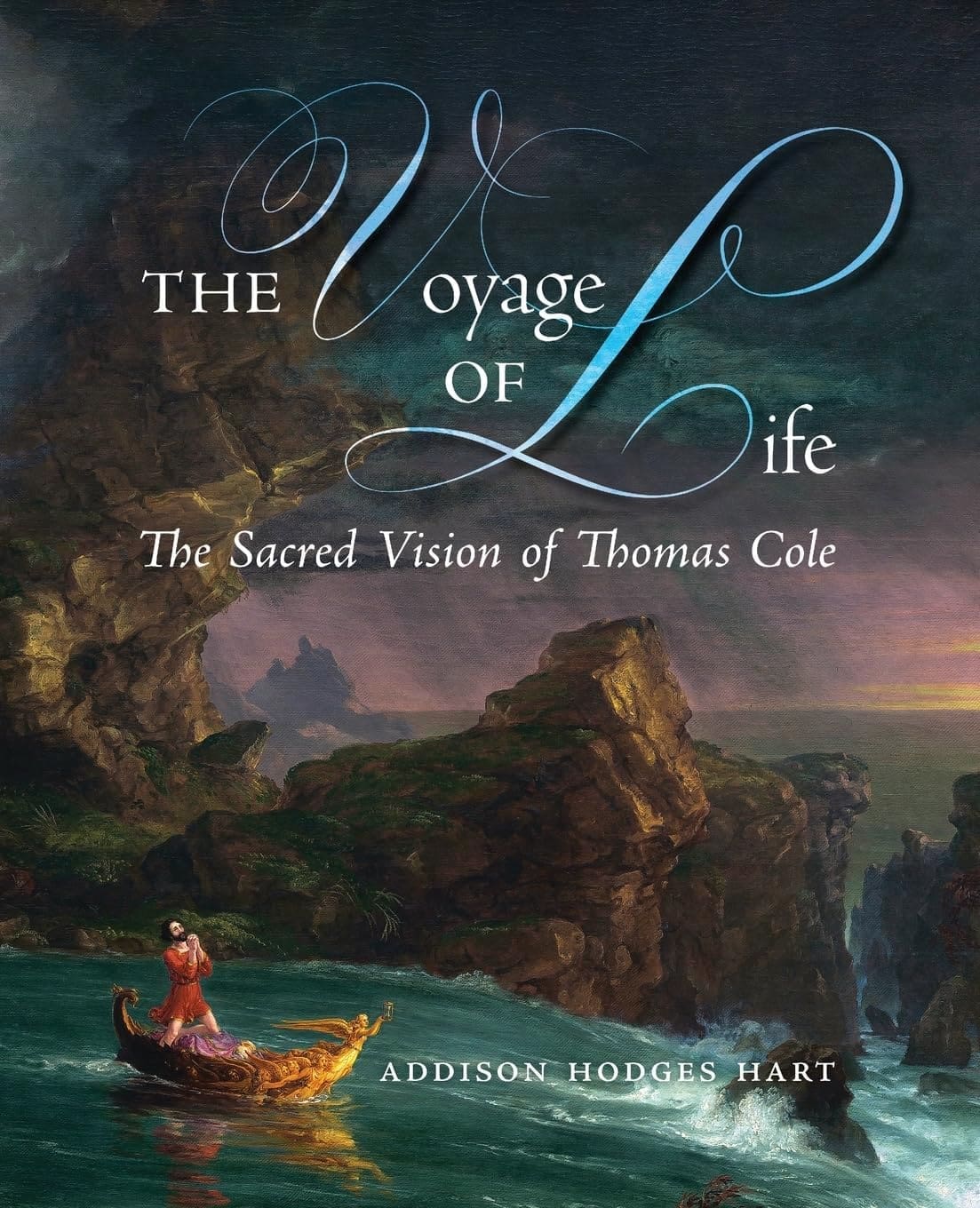
The Hated Question

MJM: While I’m annoyed when asked “What’s your favourite _______?” questions, I don’t mind asking them. So: What is your favourite of your brother David’s books, and what is your favourite of yours?
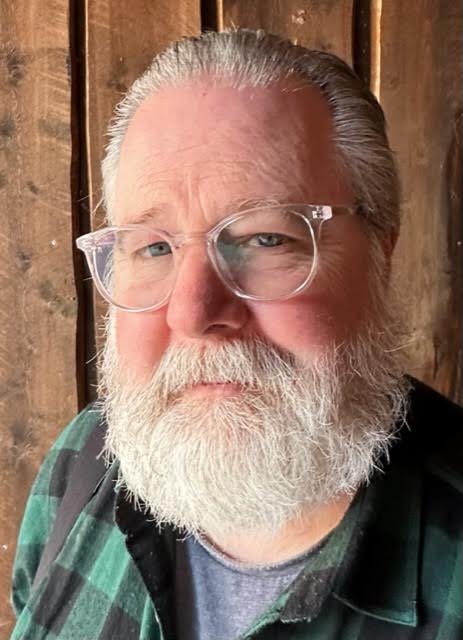
AHH: Of David’s theological books, I’m still most fond of his The Doors of the Sea. For someone who claims not to have a pastoral bone in his body, he gave us a very fine pastoral book with that one. I’m also quite fond of the children’s books he’s written with his son, Patrick, and his Roland in Moonlight is a delightful mix of genres that somehow works. (He’ll not take it amiss, I think, if I say it’s his Sylvie and Bruno, only more successful.)
Of my own books, my favourite is Patapsco Spirits: Eleven Ghost Stories. I enjoyed writing those stories immensely and could happily write more of the same. Of my nine non-fiction books, I’m proudest of The Voyage of Life: The Sacred Vision of Thomas Cole, The Ox-Herder and the Good Shepherd: Finding Christ on the Buddha’s Path (with a cover endorsement by Huston Smith, which I treasure), and the book I did that also featured Solrunn Nes’s iconography: Silent Rosary: A Contemplative, Exegetical, and Iconographic Tour Through the Mysteries. The one book I would consider overhauling is Strangers and Pilgrims Once More. I feel I overstated some things in it and would like to produce a second edition—I’ve already revised two of its chapters on my Substack page.
On Actually Going to Church

MJM: There is a general tendency for self-proclaimed mystics to “graduate” from the humdrum details of congregational life. I was once on a Zoom call for a group of contemplatives, and the person leading it insisted our meetings happen on Sunday morning. When someone protested that that is generally the church hour, the leader was somewhat offended. Yet your work has an ecclesial appeal. It’s even “churchy” in the best sense of that term, as in enjoying the musical details of Anglican liturgical chant. Are you a regular church attender? I know you served as a priest for a time, and sometimes I get the sense that your articles had their origins in the pulpit. Some see silence and institutional Christianity locked into mortal combat. But if, as Maggie Ross argues, “the greatest adept can never afford to abandon simple petition, thanksgiving, Scripture and sacrament,” then ordinary congregations should not be forsaken. You are critical of institutional Christianity in Strangers and Pilgrims Once More, but not nearly as much as others, who sometimes seem to (quite un-mystically) despise it. Is this read correct?

AHH: Speaking very broadly, among the many reasons that I’m critical of institutional Christianity, one recurring feature that disgusts me is that, whenever its privileged relationship to “the world”—by which I mean specifically its innumerable social connections with governments, states, political currents, the zeitgeist—has been threatened, its official bureaucracies have tended to compromise or abandon its perennial spirituality and morality for the sake of holding tight to its social status and, frankly, its revenue. This has been the tragedy of the “Constantinian” curse, and in our day we’re witnessing the tail end of the sad, slow, centuries-long deterioration of “Christendom.” And it’s ending in moral capitulation, “not with a bang but a whimper.” W.R. Inge famously said, more than once, that whoever marries the spirit of this age will be a widow in the next; and the institutional churches—like so many aging dowagers—have been, it seems, forever chasing after the fleeting spirit of each successive age to wed the boy and bed him just as he expires. It’s pathetic to watch. The hope of the church lies in holding on to its heritage, staying true to its faith and practice, and recognizing that it’s always essentially a stranger in a strange land—now more than ever, perhaps.
That said, yes, I do attend church. I travel into Bergen on Sundays to attend the Bergen Anglican Church—a Church of England parish belonging to the Diocese of Europe. I don’t believe in not attending church, if there’s a sound one within reach, if only for the sake of the Eucharist. There are those who appear to believe that abandoning all congregational life in an organized church is in itself a brave or conscientious move. I can’t agree, unless all the churches in one’s vicinity are dead or compromised. I’d prefer to see those persons establish an alternative congregational life if that’s the only option left to them. If ever I left Anglicanism again (and the way the Church of England is headed, who knows?), I’d gravitate to Orthodoxy, which also has a presence in Norway. But I wouldn’t not attend a traditional liturgical church if one were available. As it happens, though, mine is a fine small Anglican parish community. We’re also lucky enough to worship in an atmospheric medieval church, the altarpiece dating to the fifteenth century, with some of the twelfth-century art still visible on its walls. Solrunn attends nearby at St. Paul’s, the—flourishing and traditional, in the best sense—Roman Catholic church, at the same hour, and afterward we compare notes. I’m a retired Episcopal priest, and I was a Roman Catholic priest for a few years before returning “home” to Anglicanism. In my heart of hearts, as I soon realized, I was always Anglican and not very good at being “Roman.”
I firmly believe that Christian contemplation must be formed by the tradition. By that I mean not simply “the Bible” but the full liturgical and devotional life—whether Western, Eastern, Latin, Greek, Anglican, or whatever—which unashamedly brings us to the wellsprings of the faith. “Tradition,” rightly defined, is “the life of the Spirit in the church.” It isn’t merely “ancient”—it’s no relic—but perennial and living. “Christendom” as a “social arrangement” may be dead or dying, but the great tradition shouldn’t be allowed to disappear along with it—although the churches have done a deplorable job in our time of acquainting their people with the riches of their inheritance. Our worship should be drawing on the vast wealth of readings, psalmody, music, imagery, and so on that articulate what we believe (lex orandi, lex credendi—“the rule of prayer is the rule of belief”). We don’t need more novelties, but a return to the sources. (To borrow a Roman Catholic designation, I’m firmly planted in what used to be called the ressourcement theological view—“back to the sources.”)
I could go on, but I’ll sum it up this way: our ages-old heritage of solemn ceremony and thoughtful prayer prepares the Christian mind for contemplation. It provides the material, the mystery that invites the soul to go further in and deeper, and its yearly sequence consecrates time and transfigures the quotidian into a revelation of the divine order. I believe it was John Cassian who said—regarding spiritual reading, but it applies just as well to the contents of traditional worship and liturgy—that the intellect is like two millstones that constantly require grist so that the stones don’t grind against one another and become ruined. Unfortunately, the worship in many, many churches is woefully inadequate—politicized, “relevant,” chatty, and about as deep as a tortilla. The “grist” of tradition has frequently been neglected and sometimes purposely thrown out. We need for it to be retrieved and used.
On the Digital Terrain

MJM: Frankly, you’re one of the reasons I’m still on Facebook. You constantly find treasures across a range of sites, treasures usually unavailable to those limited to print. You model a disciplined use of an unwieldly medium. You have also deployed Substack successfully (even getting me to be a paid subscriber, which I’ve never done before). Is this move to Substack due to your dissatisfaction with the realities of publishing? Overall, care to comment on any principles you deploy for navigating the digital terrain? Do you think the Substack bubble will burst, or is it the tool you’ve been waiting for?

AHH: Facebook is a venue that I’ve found congenial, even when others have found it distracting or worse. Perhaps it’s just the grumpiness of my advanced age, but I have no qualms about unfriending or blocking those who are querulous, routinely vulgar, or want to scold me for some alleged offence against contemporary sensitivities (about which I care not a whit). I take to heart Abba Poemen’s advice: “Depart from anyone who is always scornful in his conversation.” The result is that I have greater peace than if I were to argue with everyone who’s spoiling for a fight. I keep my page “public,” but comments are restricted to friends. So, I keep the traffic down. I don’t engage in politics anymore on Facebook, unless some larger point is to be made by addressing the topic. I honestly don’t know how disciplined I am; it’s more a matter of temperament. I just know I don’t put up with nonsense or puerility for long and never have.
I treat my Substack page as a ministry. You mentioned above that my posts seem to have been born in the pulpit. They haven’t, but certainly they reflect the pastoral aspect of my writing mentioned earlier. So far, I like Substack, and I’ll probably continue with it as long as I’m up to doing it and have something to say. It doesn’t mean I’ll not write any more books, but I’m enjoying the venue.
Pitfalls to Avoid

MJM: I think I’ve identified a few of the pitfalls that you call your readers to avoid. Tethering oneself to political mass movements of the left or right, overvaluing or ignoring non-Christian mystical traditions, using “pragmatism” as an excuse to not think seriously about doctrine and biblical studies, gripping what’s left of the denominational structures of Christendom too tightly or casually forsaking essentials like the Nicene Creed or the resurrection. It’s not the most elegant list, but am I right, and am I missing any?

AHH: In the spiritual life, there are quite a few pitfalls—often tailored to our individual weaknesses and strengths both. The desert fathers understood well that prayer is the gauge for all else we do in life. The highest prayer, in their estimation, is an imageless and indescribable encounter with God, and all the other forms of prayer lead us in that direction. But the spiritual life will involve struggle. As Abba Agathon put it, “All the other efforts of a religious life, whether they are made vehemently or gently, have room for a measure of rest. But we need to pray till we breathe out our dying breath. That is the great struggle.” Avoiding the pitfalls and hindrances to a life of earnest prayer is something I try to focus on in my writings.
On Solrunn Nes

MJM: It seems in a way your theological work parallels your wife’s artistic project (and she has a Substack too). This video introduction to her work is especially compelling. Her icons on offer in Silent Rosary are unique and unexpected—a material mysticism indeed! For example, she chooses, like Giotto, blue over gold as her background colour. But nor does she depart from the Orthodox iconographical canon, and thereby her work is in concert with the ages and retains its depth, which is exactly how I would describe your writing. Do you mind if I ask how you met? Does she consider herself a mystic as well?

AHH: We met almost two and a half decades ago and developed a long-distance friendship. Some people who read my books and posts may not know that I went through a sad divorce some years ago—if that disappoints any of them, it disappoints me more. All I will say about it is that, psychologically speaking, it was an impossible situation to maintain. The upshot is that I didn’t continue in priestly ministry, since I don’t believe a divorced person is right for that position.
In the wake of that, Solrunn and I decided to support each other, and so, after going through all the necessary hoops, we were wed. We enjoy a bond of love and companionship, share a common faith, a shared vocation, and our daily cooperation has been a blessing. Before all else, we are friends. Our companionship is, to borrow a phrase from Orthodox parlance, like that of “brother and sister.” Some might say we lead a semi-monastic life. She wouldn’t be comfortable, I suspect, to be called a “mystic.” When I use that word, however, I simply mean someone who intuits the living reality of God and who prays and meditates as deeply as one can. So, in my opinion, the word is suitable for Solrunn.
I think her iconography expresses that opinion well. Like me, when it comes to the various artistic and creative expressions of the faith, she doesn’t wish to stray far from the tradition. She’s an art historian, so her appreciation of art includes everything from the primitive to the modern and all cultures. But iconography is a form that, while it allows for originality, does so in the context of the canons. (“Canon” literally meaning something that “measures.”) Many of the colours she uses reflect, I think, a distinctively Norwegian character—you can find similar colours decorating the interiors of many older Norwegian churches. You mentioned Giotto, who, as it happens, is one of her favourite medieval artists. She has also been involved in reconstructing painted wooden medieval altar frontals in Norway, and her more Western medieval-inspired art is prominently displayed in the sanctuary at St. Paul’s Roman Catholic Church in Bergen.
So You Want to Encounter God?

MJM: I think we agree that Martin Laird is a cut above most writing on mysticism (rumour has it a fourth volume to his magnificent trilogy is forthcoming), and Laird is very keen on the practicalities. To our shame as Christians, the Zen tradition is often better on the details, posture, breathing, and equipment. Why is this? Can you walk us through a week of prayer practice, including timing, place, experience, and so on? For those of us who wish to plumb the depths of God instead of obsessing about politics this election year, can we end with some of contemplation’s brass tacks?

AHH: I think the Zen tradition appears to be better at it because, to be frank, it’s entirely focused on the practice. It’s everything to Zen—even the doctrine of the Buddha isn’t really central. But if we look at Buddhism in all its varieties, we discover that the Zen tradition is only one stream, and not even the largest. It could be compared to, say, the hesychastic tradition or Ignatian spirituality within universal Christianity.
Turning then to our own faith, when one looks into that hesychastic tradition of the East, for instance, one finds similarly detailed advice regarding breathing, posture, and so on. Within Orthodoxy, and even outside it, profound engagement with the Jesus Prayer is not uncommon, even among the laity. In the West, since the 1970s, there has also developed—thanks to the Trappists—what has been called “Centering Prayer,” which is just ancient Christian prayer practice (exemplified, for instance, in The Cloud of Unknowing and other classical sources) repackaged for a modern audience. When I was still a practicing priest, I made it an aim to teach these methods to parishioners, even from the pulpit, and many adopted them. So I don’t believe there is any reasonable excuse for churches and priests or pastors not to guide people into deep, authentic, traditional prayer lives. If they’re not learning it in seminary, they need to search out a monastery or someone who can teach them these things. We certainly aren’t lacking in resources, books, teachers—Martin Laird is an excellent example of that.
If I were to advise a basic practice to adopt, it would be the classical threefold rule of (1) attending the Eucharist (at least on Sundays) and living a sacramental life, (2) praying the daily offices (for example, Morning and Evening Prayer in the Book of Common Prayer, or some form of the Liturgy of the Hours or Breviary, either individually or with others; the offices are the best way to “pray” the Scriptures and other traditional sources), and (3) spending time each day in silence and mental prayer (perhaps beginning with twenty minutes or so in the morning and another twenty minutes in the afternoon or evening).
Of course, one can only practice as one has the time for it, but most of us can find at least some time. A good rule is to follow Abbot John Chapman’s advice: “Pray as you can, not as you can’t.” In addition, learning to pray the Jesus Prayer (or some other repetitive prayer that can become habitual, a source of comfort and keeping focused) is both beneficial and an ancient practice. It becomes a mainstay and reminder in all circumstances. One can find helpful advice about it in books and online. And there are retreat houses and monasteries where one can spend a few days in silent retreat, which is a great “school of contemplation” for many. If one can find a competent spiritual director, one is blessed indeed. But when one doesn’t have a flesh-and-blood guide, turning to the best books and trusting the Spirit’s guidance can offer a substitute.
Last, if one can find a church where the liturgy immerses the heart and mind in the depths of the perennial tradition, through word and worship, there will be sown the seeds of contemplation. If you find such a church, avail yourself of it. Alas, they’re not always easy to find.

MJM: Thank you, Addison! Please keep writing.
